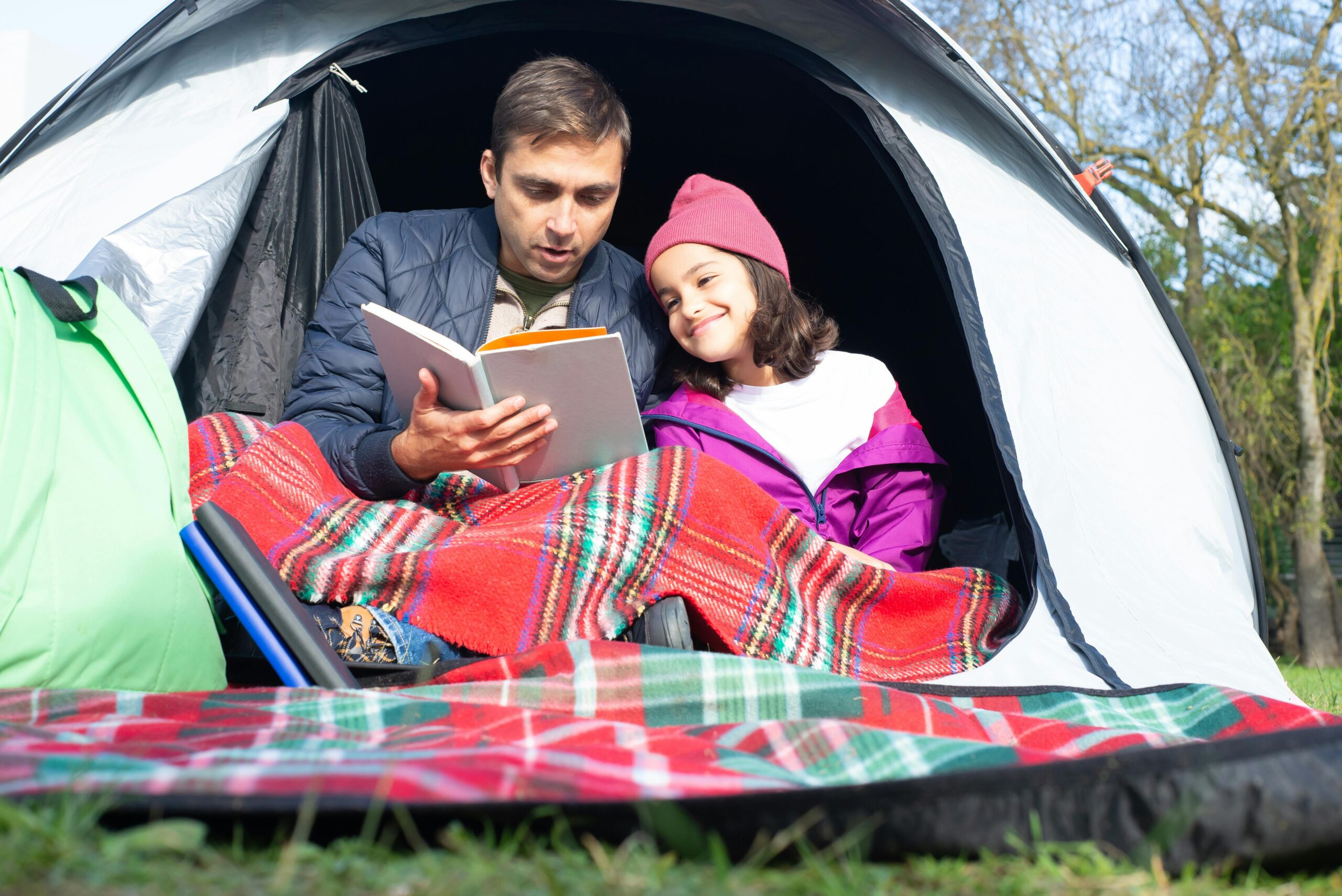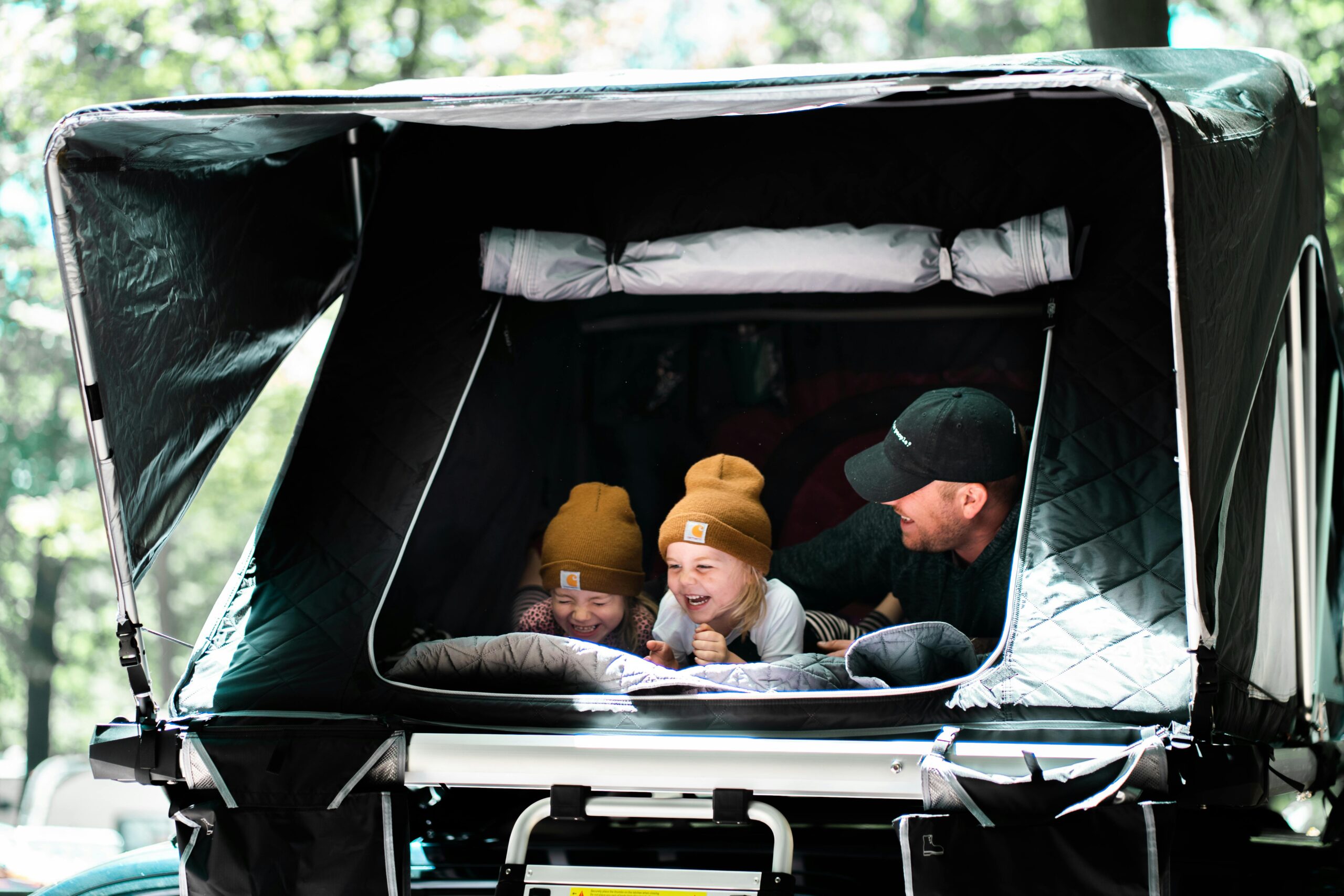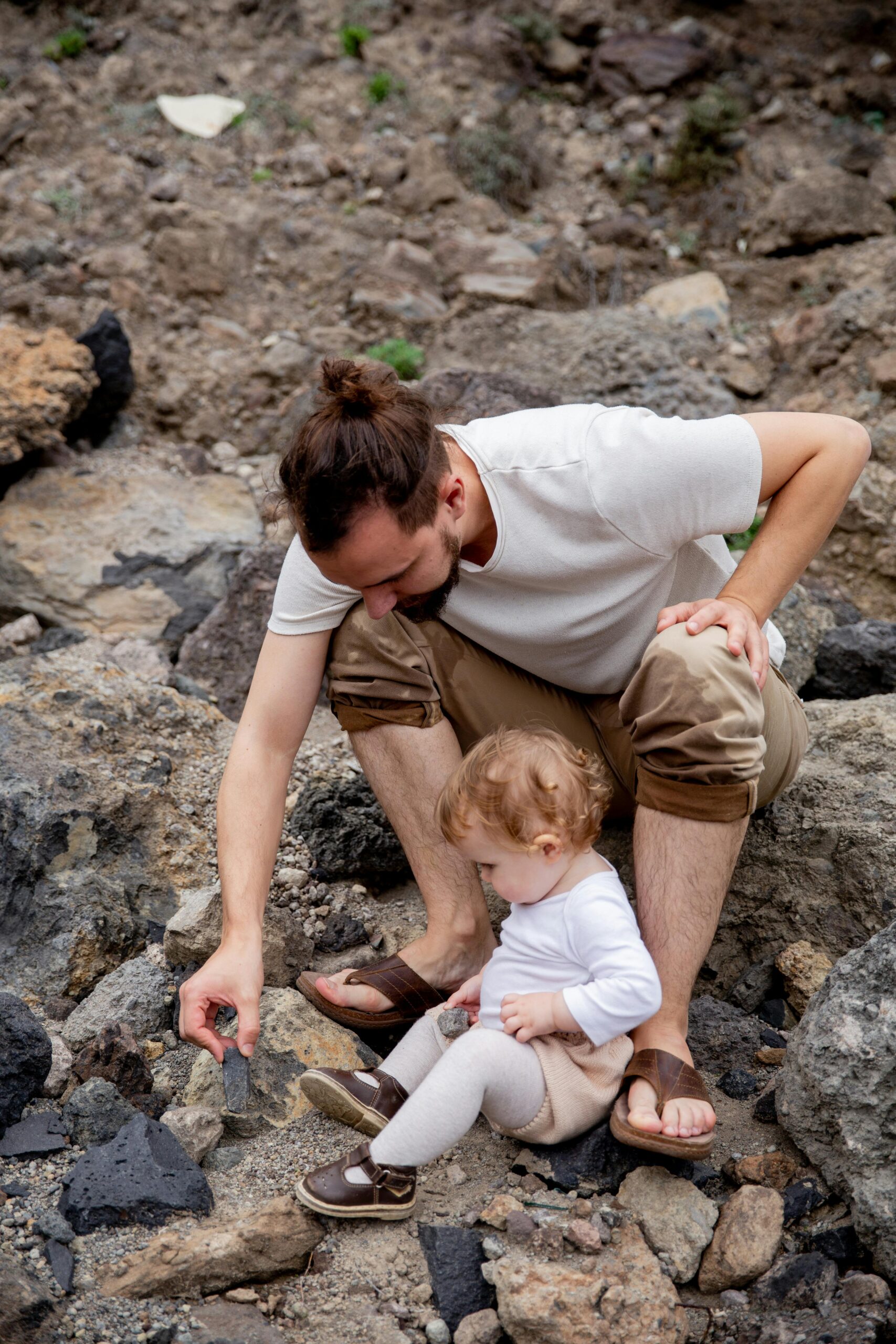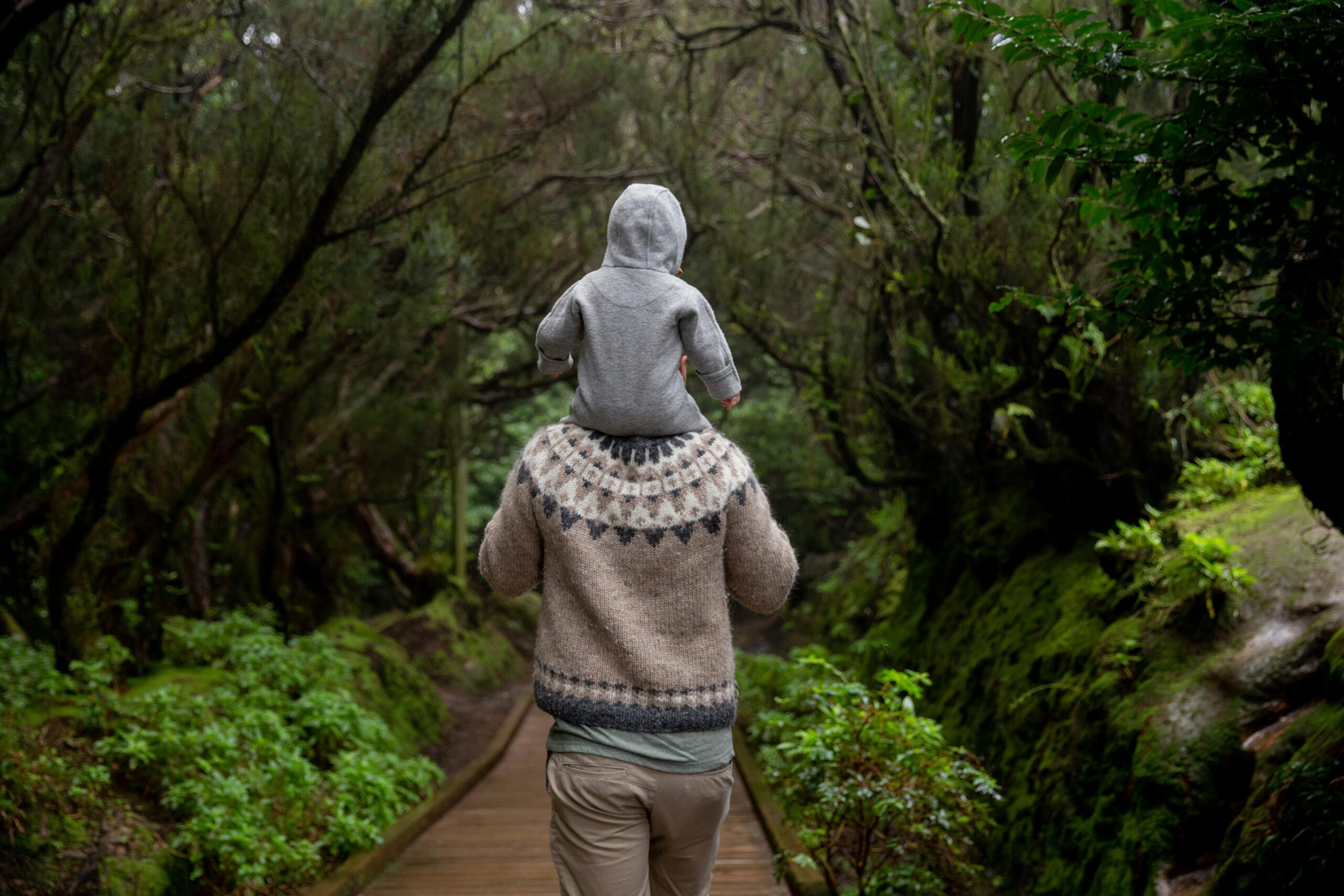In today’s fast-paced world, finding quality time to bond with family members can be a challenge. Amidst hectic schedules and endless distractions, carving out moments for meaningful connections becomes essential. Family camping offers a perfect opportunity to escape the hustle and bustle of daily life and immerse oneself in nature while creating lasting memories with loved ones.
As we delve into the world of family camping adventures, we’ll explore the joy of spending time outdoors, the excitement of exploring new terrains, and the warmth of gathering around a campfire under the stars. From preparation and planning to overcoming challenges and cherishing shared experiences, this article aims to inspire families to embark on their own outdoor escapades and strengthen their bonds amidst the beauty of nature.
Choosing the Right Camping Location
Selecting the perfect camping location sets the tone for your entire trip. Consider factors like proximity, terrain, and amenities when making your decision. Are you looking for a serene spot nestled in the mountains or a lively campground with facilities for families? Research potential sites beforehand to ensure they align with your preferences and needs. Additionally, check for any permits or reservations required, especially for popular destinations during peak seasons. By carefully choosing your camping location, you can enhance your overall experience and create lasting memories with your family.
Essential Camping Gear and Supplies
Packing the right gear and supplies is crucial for a successful family camping trip. Start with the basics like a sturdy tent, sleeping bags, and sleeping pads to ensure a comfortable night’s rest. Don’t forget about cooking equipment such as a portable stove, fuel, and cookware for preparing meals outdoors. Other essential items include a first aid kit, insect repellent, and a flashlight or headlamp for navigating in the dark. Consider the weather forecast and pack accordingly, including layers of clothing and rain gear if necessary. Remember to bring enough food and water to sustain your family throughout the trip. By being prepared with the right gear and supplies, you can enjoy a safe and enjoyable camping experience with your loved ones.
Safety Precautions and Tips for Beginners
Safety should always be a top priority when embarking on a family camping adventure, especially for beginners. Familiarize yourself with basic wilderness safety practices such as setting up camp away from hazards like cliffs or unstable terrain. Teach children about fire safety and establish clear boundaries around the campfire. Keep a close eye on young children near bodies of water and ensure everyone wears appropriate footwear for hiking or exploring. Familiarize yourself with local wildlife and take precautions to store food securely to avoid attracting animals to your campsite. Lastly, have a communication plan in place in case of emergencies, including knowing how to signal for help and having a charged cell phone or emergency radio. By following these safety precautions and tips, you can minimize risks and enjoy a worry-free camping experience with your family.
Hiking Trails and Nature Walks
Exploring hiking trails and taking nature walks together as a family can foster a deeper connection with the natural world while providing opportunities for bonding. Research nearby trails suitable for all skill levels, ensuring they offer scenic views and points of interest along the way. Encourage children to observe and interact with their surroundings, pointing out different plant and animal species they encounter. Pack essentials like water, snacks, and sunscreen, and consider bringing along a field guide to identify flora and fauna. Take breaks to appreciate the beauty of nature and capture memorable moments with photographs. By embarking on hiking adventures together, your family can create lasting memories while promoting physical activity and appreciation for the great outdoors.
Campfire Cooking and Storytelling
Gathering around the campfire for cooking and storytelling is a timeless tradition that brings families closer together. Plan simple yet delicious meals that can be prepared over the flames, such as foil-wrapped potatoes, skewered vegetables, and s’mores for dessert. Encourage everyone to participate in meal preparation and cooking, fostering teamwork and cooperation. As the sun sets and the stars emerge, take turns sharing stories, whether they’re personal anecdotes, spooky tales, or funny jokes. Roast marshmallows and engage in friendly conversation, creating a warm and inviting atmosphere around the campfire. These moments of shared laughter and camaraderie can strengthen family bonds and create cherished memories that will be treasured for years to come.
Outdoor Games and Activities for Kids
Engaging in outdoor games and activities is a fun and effective way to promote family bonding while keeping children entertained. Bring along classic games like frisbee, soccer, or tag that can be enjoyed in a natural setting. Set up a scavenger hunt to encourage exploration and discovery, hiding clues or objects throughout the campground or hiking trails. Consider bringing along art supplies for nature-inspired crafts, such as leaf rubbings or rock painting. Encourage creativity and imagination with open-ended activities like building forts or creating nature journals to document their experiences. By providing opportunities for active play and creative expression, you can foster a sense of joy and togetherness among family members while enjoying the beauty of the outdoors.

Dealing with Unpredictable Weather
One of the challenges of camping is contending with unpredictable weather conditions, which can range from sudden rain showers to extreme heat or cold. To mitigate the impact of weather on your camping trip, it’s essential to be prepared and flexible. Monitor weather forecasts leading up to your trip and pack accordingly, including waterproof clothing, extra layers, and a sturdy tent capable of withstanding wind and rain. Bring along tarps or a canopy to provide shelter in case of inclement weather, and be prepared to adjust your plans if necessary. Have a backup indoor activity or board games on hand for entertaining children during rainy days. Additionally, prioritize safety by avoiding activities like hiking or swimming during severe weather warnings and being aware of lightning risks. By staying informed and adaptable, you can navigate unpredictable weather challenges and still enjoy a memorable camping experience with your family.
Managing Limited Resources and Waste
When camping, you’re often faced with limited resources such as water and fuel, as well as the responsibility of minimizing waste and environmental impact. To manage resources efficiently, practice water conservation techniques like using biodegradable soap for washing dishes and taking quick showers. Consider investing in reusable containers and utensils to reduce single-use plastic waste, and pack out any trash or litter to leave no trace of your visit. Plan meals that require minimal cooking time and fuel consumption, opting for one-pot recipes that can be easily prepared over a camp stove or fire. Encourage children to participate in waste reduction efforts by teaching them about recycling and composting. By adopting sustainable camping practices, you can minimize your environmental footprint and preserve the natural beauty of the outdoors for future generations to enjoy.
Handling Emergencies While Camping
Despite careful planning and preparation, emergencies can still occur while camping, ranging from minor injuries to more serious incidents. It’s crucial to be equipped with the knowledge and supplies necessary to handle emergencies effectively. Pack a comprehensive first aid kit containing essentials like bandages, antiseptic wipes, and medications for common ailments. Familiarize yourself with basic first aid techniques such as treating cuts, burns, and insect stings, and ensure everyone in your group knows how to access emergency services if needed. In the event of a medical emergency, remain calm and assess the situation before taking action. Have a designated meeting point and communication plan in case members of your group become separated. By prioritizing safety and preparedness, you can navigate emergencies with confidence and ensure the well-being of your family while camping.
Sharing Memories and Experiences
After a family camping trip, take the time to reflect on and share the memories and experiences you’ve created together. Sit down as a family and reminisce about the highlights of the trip, from exciting adventures to funny mishaps around the campfire. Encourage each family member to share their favorite moments and photos, fostering a sense of camaraderie and connection. Create a scrapbook or digital album to preserve these memories for years to come, including written reflections and captions alongside photos. Sharing memories from your camping adventures not only strengthens family bonds but also provides an opportunity to relive the joy and excitement of your outdoor experiences.
Lessons Learned from Family Camping Adventures
Every camping trip offers valuable lessons and insights that can enrich future outdoor adventures. Take time to reflect on the challenges you faced and the solutions you discovered as a family. Discuss what worked well and what could be improved upon for next time, whether it’s refining meal planning strategies or upgrading camping gear. Encourage children to share their perspectives and ideas for making future trips even more enjoyable. Reflecting on lessons learned from family camping adventures fosters a spirit of resilience and adaptability while empowering your family to tackle new challenges with confidence.
Planning Future Outdoor Trips as a Family
As you reflect on past camping experiences, use them as inspiration for planning future outdoor trips as a family. Discuss destination ideas and activities that align with your interests and preferences, whether it’s exploring national parks, embarking on a backpacking adventure, or discovering hidden gems closer to home. Consider setting goals for your outdoor adventures, such as learning new outdoor skills or visiting a certain number of state parks each year. Get everyone involved in the planning process, from researching potential destinations to creating a packing list and itinerary. Planning future outdoor trips as a family not only builds anticipation and excitement but also strengthens bonds as you work together to create unforgettable experiences in the great outdoors.
FAQs
Q. What should I pack for a family camping trip?
A. When packing for a family camping trip, consider essentials like tents, sleeping bags, cooking equipment, clothing suitable for the weather, food, water, first aid kit, insect repellent, sunscreen, flashlight, and personal items. Don’t forget entertainment like books, games, or outdoor activities for the kids.
Q. How do I choose a campsite suitable for my family?
A. Look for campsites with family-friendly amenities such as designated fire pits, bathrooms, and possibly showers. Consider the location’s proximity to activities like hiking trails, swimming areas, or playgrounds. Ensure the site is spacious enough for your family’s tent(s) and has flat ground for comfortable sleeping.
Q. What safety precautions should I take while camping with my family?
A. Safety is paramount when camping with your family. Ensure everyone knows basic safety rules, like staying away from the campfire and being cautious near water bodies. Keep a first aid kit handy and familiarize yourself with emergency procedures for the area. Check weather forecasts before heading out and be prepared for changes in weather conditions.
Q. How can I keep my children entertained during the camping trip?
A. Encourage your children to explore nature by going on hikes, scavenger hunts, or bird watching. Bring along toys and games suitable for outdoor play, such as frisbees, balls, or kites. Consider involving them in setting up camp and cooking meals, which can be both educational and entertaining.
Q. What if someone in my family has dietary restrictions?
A. Plan meals that accommodate everyone’s dietary needs. Pack plenty of non-perishable foods that fit within any dietary restrictions, and consider alternatives for common camping meals if necessary. Communicate with everyone in your group to ensure their needs are met, and bring along any necessary cooking utensils or equipment.
Q. How do I make the camping experience enjoyable for everyone?
A. Involve everyone in the planning process, from choosing activities to preparing meals. Be flexible and open to trying new things, but also respect everyone’s preferences and limitations. Encourage bonding activities like storytelling around the campfire or stargazing at night. Above all, prioritize spending quality time together as a family.
Conclusion
As the embers of the campfire fade and the echoes of laughter linger in the air, it becomes evident that family camping adventures are more than just outdoor excursions – they are opportunities to forge enduring connections, foster resilience, and create cherished memories that will last a lifetime. So, whether it’s pitching a tent in the wilderness or roasting marshmallows under the night sky, let’s embrace the spirit of adventure, step outside our comfort zones, and embark on unforgettable journeys with those who matter most. After all, in the wilderness of nature, amidst the simplicity of a campsite, we discover the true richness of family bonds and the joy of creating memories that will be treasured for generations to come.




